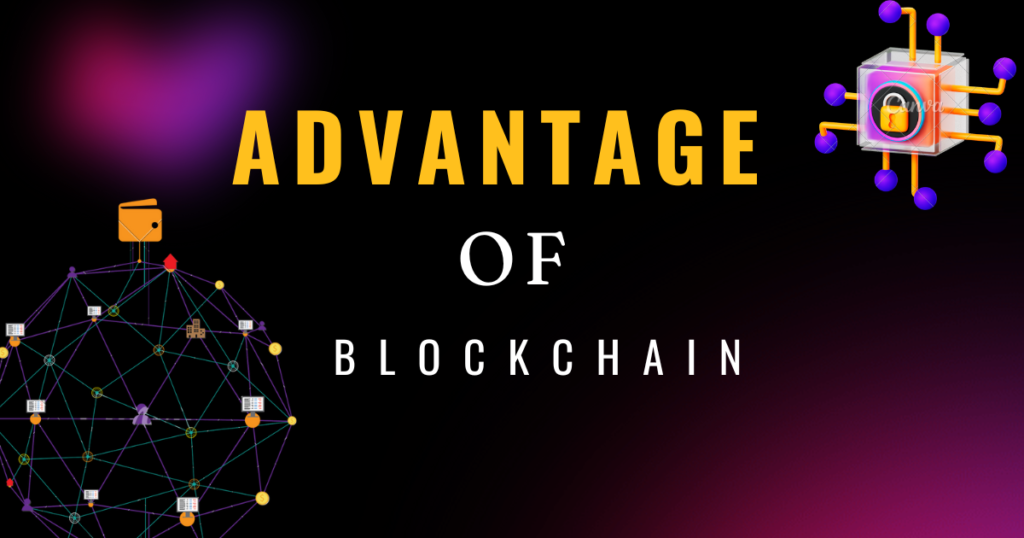As technology keeps on developing at a fast pace, there is one specific development that has caught the attention of specialists and lovers alike: blockchain technology. Initially made as the establishment for digital currencies like Bitcoin, blockchain has since extended its range to upset different industries beyond finance. From medical services to supply chain management, blockchain can possibly smooth out processes, increase security, and further develop transparency on a worldwide scale.

1. What is blockchain technology?
Blockchain technology is a generally new idea that is reforming how transactions and data are securely put away and shared. Basically, a blockchain is a digital ledger that contains a record of transactions or data that is put away in a decentralised way. This means that, as opposed to being put away on a central server or database, the data is distributed across a network of computers, or nodes.
Each block in the blockchain contains a rundown of transactions that have been checked and added to the ledger. These blocks are connected together in a sequential chain utilising cryptographic technology, which guarantees that the data is secure and can’t be altered or tampered with. This makes blockchain technology ideal for circumstances where trust and security are vital, for example, in financial transactions or data sharing.
One of the vital elements of blockchain technology is its transparency and immutability. Since every exchange is recorded in a block and connected to the past block, it is very hard to alter or erase any data whenever it has been added to the blockchain. This makes blockchain technology a brilliant instrument for guaranteeing the honesty of data as well as giving a secure and dependable record of transactions.
Blockchain technology is generally connected with cryptocurrencies, for example, Bitcoin, which use blockchain technology to record and verify transactions. However, the expected purposes of blockchain technology stretch far beyond cryptocurrencies. The technology can possibly change a large number of industries, from medical services and supply chain management to casting ballot systems and digital personalities.
For instance, in the medical care industry, blockchain technology could be utilised to securely store and offer patient records, guaranteeing that delicate medical data is kept private and can’t be tampered with. In the supply chain industry, blockchain technology could be utilised to follow the development of products from producer to retailer, giving transparency and responsibility all through the supply chain.
Notwithstanding its security and transparency benefits, blockchain technology additionally offers the possibility to diminish exchange expenses and handling times. By dispensing with the requirement for intermediaries like banks or installment processors, blockchain technology empowers shared transactions to happen straightforwardly between people or associations. This can bring about quicker, more effective transactions, as well as lower charges and expenses related to traditional installment systems.
2. Uses of Blockchain Technology in Various Industries
Blockchain technology is progressing across different industries because of its secure and transparent nature. One of the most encouraging applications of blockchain technology is in the financial sector. By utilising blockchain, financial establishments can smooth out their tasks, diminish the risk of extortion, and provide quicker and safer transactions. Additionally, blockchain can work with distributed transactions without the requirement for intermediaries, thus diminishing expenses for both purchasers and businesses.
Another industry that can incredibly profit from blockchain technology is supply chain management. With blockchain, organisations can follow the journey of items from the producer to the buyer in a secure and transparent way. This can help in decreasing duplication, working on quality control, and guaranteeing that items fulfil administrative guidelines. Moreover, blockchain can improve the proficiency of operations processes by giving continuous reports on the situation with shipments.
The medical care industry is likewise beginning to investigate the capabilities of blockchain technology. By utilising blockchain, medical service suppliers can securely store patient records and offer them to different suppliers when required. This can work on the coordination of care, lessen medical errors, and guarantee that patients get the ideal therapy with impeccable timing. Besides, blockchain can help in guaranteeing the honesty of clinical preliminary data and in following the legitimacy of drug items.
The land business is another area that can profit from blockchain technology. Through blockchain, property transactions can be led in a secure and transparent way, wiping out the requirement for intermediaries like merchants and legal counselors. This can decrease costs for the two purchasers and dealers and accelerate the method involved with trading a property. Besides, blockchain can help in verifying the ownership of properties, diminishing the risk of extortion, and guaranteeing that all property-related reports are put away in a secure and tamper-proof way.
The gaming business is additionally beginning to take on blockchain technology to create more transparent and fair gaming ecosystems. By utilising blockchain, game designers can create decentralised gaming stages where players can securely exchange virtual resources and things. This can help in decreasing misrepresentation, guaranteeing the ownership of digital resources, and giving players more control over their gaming experience. In addition, blockchain can empower the making of extraordinary, non-fungible tokens that address uncommon in-game things or characters.
3. Benefits of Utilising Blockchain Technology
Blockchain technology offers various benefits that make it a well-known decision for different industries. One of the critical advantages of using blockchain technology is its capacity to improve security. The decentralised idea of blockchain guarantees that data is put away across a network of computers, making it undeniably challenging for programmers to think twice about altering data. Each new block is connected to the previous one in a chain, making a tamper-evidence record that upgrades the security of transactions.
One more benefit of blockchain technology is its transparency and immutability. The open and distributed nature of blockchain considers all transactions to be recorded for all time and transparently on a public ledger. This degree of transparency assists with forestalling misrepresentation and guarantees that trust is laid out between parties. When an exchange is added to the blockchain, it can’t be altered or erased, giving an elevated degree of security and trustworthiness to the data.
Furthermore, blockchain technology offers expanded effectiveness and cost savings for businesses. By taking out the requirement for intermediaries, like banks or installment processors, blockchain smoothes out the course of transactions. This can result in faster exchange times and lower charges related to moving assets. Smart contracts, which are self-executing contracts with the details of the arrangement among purchaser and vendor straightforwardly composed into code, can additionally mechanise processes and diminish costs for businesses.
Besides, blockchain technology can possibly change supply chain management by providing more noteworthy discernibility and transparency. By recording each step of an item’s journey on the blockchain, organisations can verify the credibility and beginning of merchandise, prompting work on quality control and responsibility. This can assist with lessening the risk of fake items entering the supply chain and guaranteeing compliance with administrative necessities.
Additionally, blockchain technology can engage people by giving them more control over their own data. With blockchain, users can keep track of ownership of their data and pick who approaches it. This can assist with shielding delicate data from being taken advantage of by outsiders and empower people to adapt their data whenever wanted. By decentralising data stockpiling and management, blockchain returns capacity to the hands of users.
By and large, the upsides of utilising blockchain technology are huge and can possibly change different industries. From improved security and transparency to expanded effectiveness and cost savings, blockchain offers a scope of advantages that can change the manner in which businesses work. As blockchain technology proceeds to develop, businesses must actually investigate its true capacity and consider how it tends to be coordinated into their activities to drive advancement and development.


